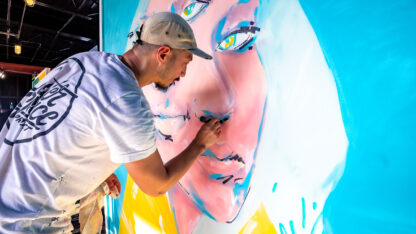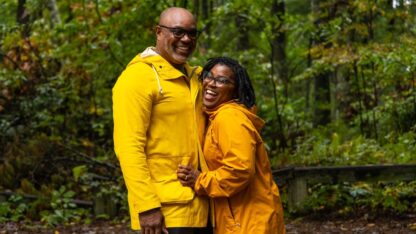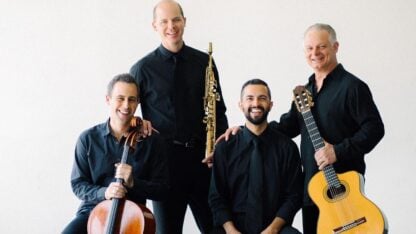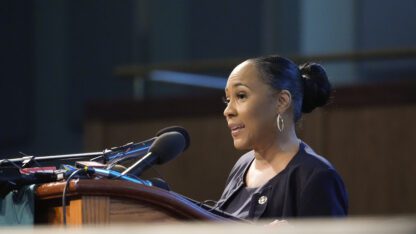The new Franco-German Cultural Center combines European interests under one tent
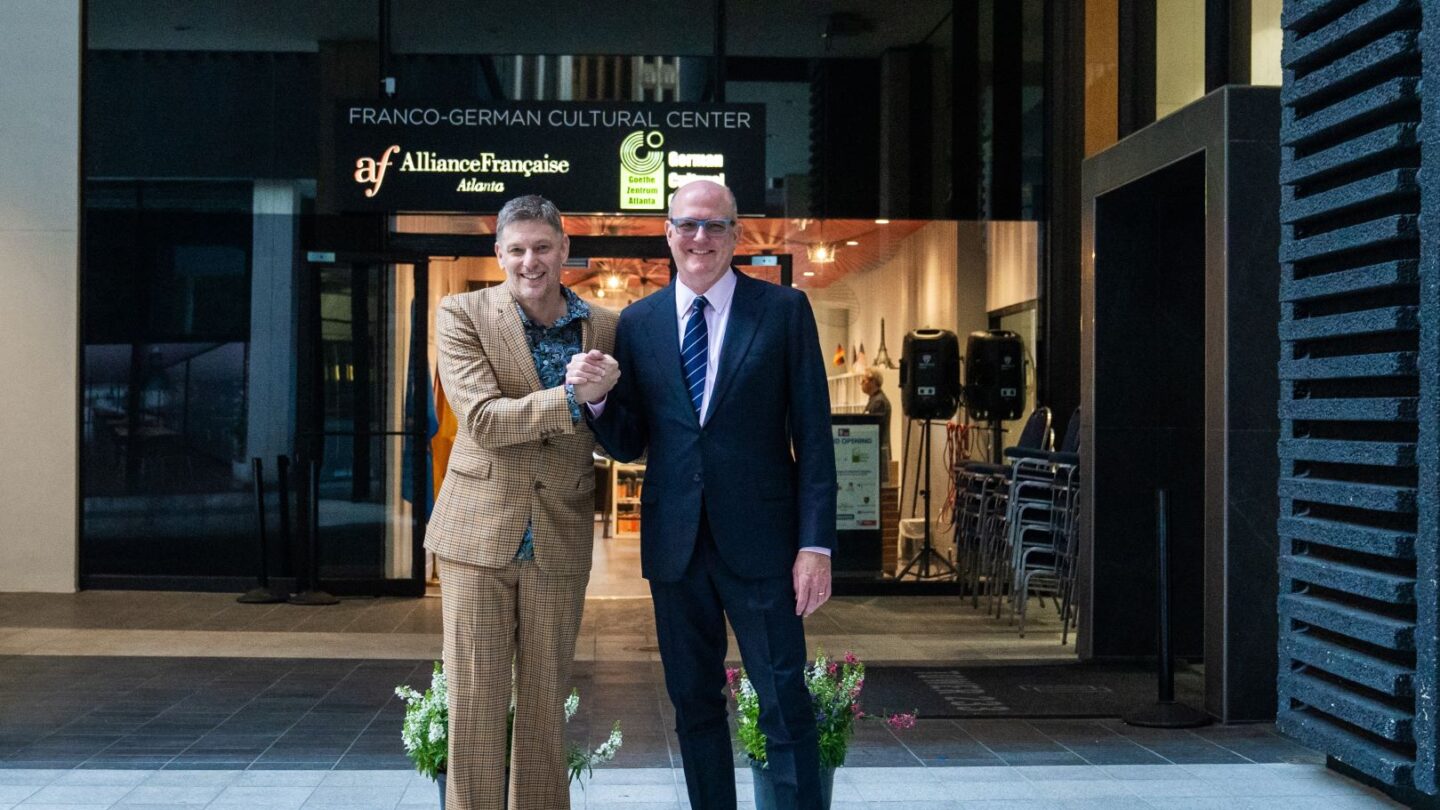
French and German cultures have long added much to the rich tapestry of collective American heritage. Here in Atlanta, two organizations dedicated to teaching French and German language and culture have joined to create the new Franco-German Cultural Center of Atlanta. The Alliance Française and Goethe Zentrum, the Goethe German Cultural Center, are committing to a new level of partnership between the institutions. To talk about the new center, “City Lights” host Lois Reitzes was joined via Zoom by Oliver Gorf, executive director of the German Cultural Center, and Richard Keatley, executive director of Alliance Française of Atlanta, as well as Onyx Henry, the project manager of the Black Life in Germany Project ongoing through December.
Interview highlights:
Why the Alliance Française and Goethe Zentrum chose to join in one building:
“The two organizations, they came together about 10 or 15 years ago, first, just to actually co-locate. And more and more we realized that the problems and the topics of the world, topics between Europe, modern Europe, and the United States, are becoming more and more, not national, but really international and intertwined,” Gorf explained. “We decided more and more to integrate parts of our programs to make clear that we are looking for perspectives that are not national only, but that are really global or European, and allow for many different opinions under one tent. If you look at our series that we did in 2021 about the climate crisis, we heard from artists, from activists, from people from France, from Germany or the United States, about the state of the planet and what should be done, what could be done, and how could we actually make it sensitive to us as human beings, that we are really in danger of losing our planet.”
A cultural alliance already bearing fruit in Atlanta:
“Thanks to our cultural institutions, in part, we have joined last year with 11 consulates, European consulates, to create the first European Film Festival of Atlanta, for example. That’s one of a lot of initiatives that we are proud of,” said Gorf. Keatley added, “Yes, that was a very exciting moment because it was the first major in-person event we did. It was at the historic Plaza Theatre that everyone knows on Ponce. All of the films were full. We didn’t have an empty seat in the house for the entire thing. We opened with a Ukrainian film in show of solidarity and then followed up with 11 European films, and that was part of our joint Franco-German cultural programming.”
“We are looking for an inclusive program. We are looking for a program that engages the civic society. We are looking for a program that allows debate, and for example, we will now, in early November, we’re going to open an exhibition that is titled ‘Democracy Will Win!’ with an exclamation mark, based on the actions and writings of Thomas Mann, Nobel Laureate, who in the beginning of his life and career was a monarchist in the early 20th century, and then became an anti-Nazi fighter…. We also worked on a street mural, for example, honoring, Sophie Scholl, who was a Nazi resistance fighter,” Gorf said. “But again, it is not so much about the past, all of this, but we always ask, ‘What does it tell us in the present, and for this matter, in the present of Atlanta or the Southeast of America?'”
Observations and objectives of the Black Life in Germany Project:
“It’s very common for people to ask me, ‘Are there any Black people in Germany?’ And my answer is, ‘Of course there are. There are lots of Black people; not an abundance necessarily, but you know, there’s a lot of Black people, and Black Germans in particular are a group of people who are often not talked about,'” said Henry. “It is, as Miss [Angela] Merkel said, a shame that they have to assert their Germanness, despite the fact that they are born and raised there. And so that is part of the goal of what I want to do here, is to bring more awareness to this group of people that has existed for quite a long time.”
“The talk that we are going to have in November is going to be on Thursday, Nov. 17 at noon, and it’s going to be a virtual talk by a man named Mr. [Mnyaka] Mboro. He is a Tanzanian activist who has lived in Germany for a very long time, and he is going to talk to us about efforts in recent years to rename certain street signs in Berlin, that have names of colonial, basically, terrorists; white Germans who were responsible for the deaths of lots and lots of Africans…. The remnants of this colonial history [are] around, and it’s something that people of color, Black people, Black Germans, don’t want to be confronted with every day.”
The Franco-German Cultural Center is open now in Downtown Atlanta, at 233 Peachtree St. NE. More information on its two cultural organizations can be found at https://afatl.com (Alliance Française of Atlanta) and https://german-institute.org (Goethe Zentrum German Cultural Center).
